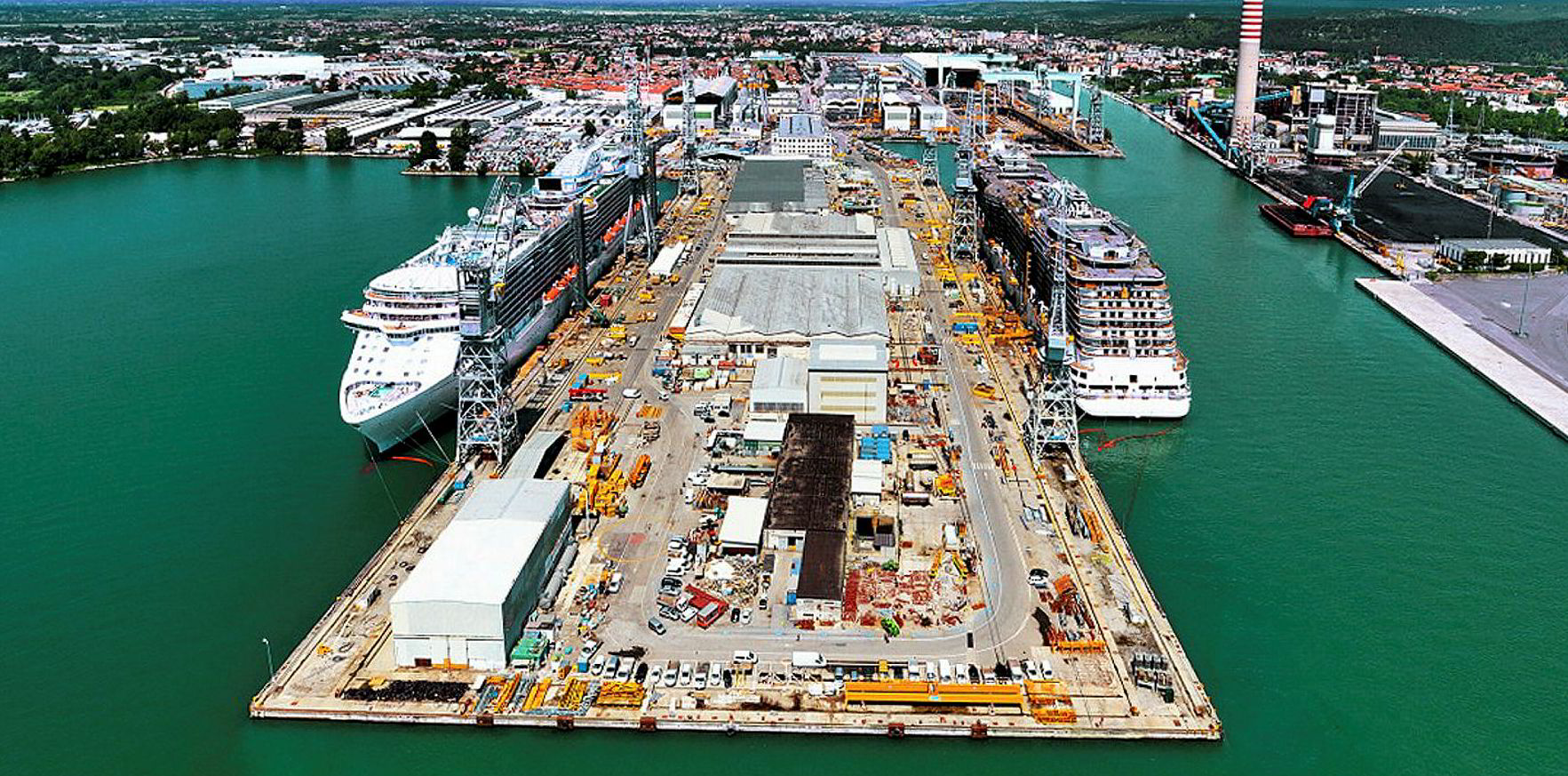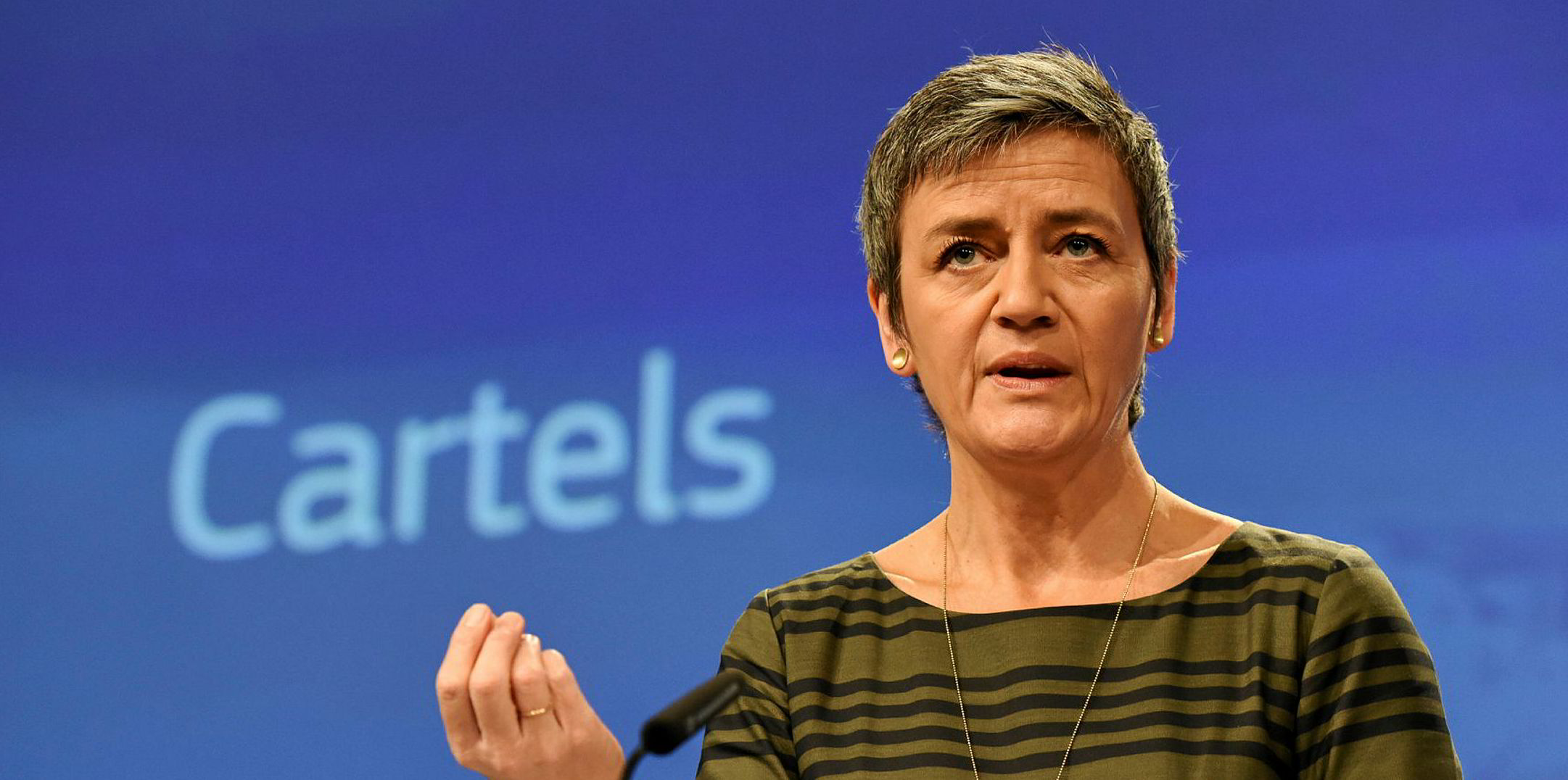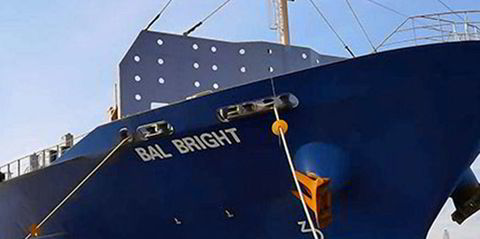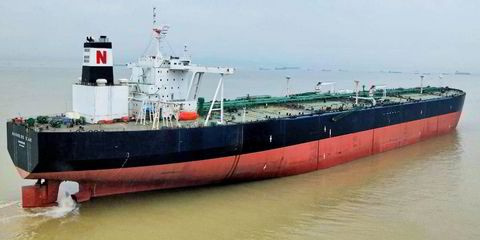Italian shipbuilder Fincantieri has seen production and revenue tumble after its yards were forced to close due to the coronavirus.
Turnover was down by €190m ($202m) in the first quarter of the year when the state-owned shipbuilder closed its production facilities to protect workers and subcontractors.
That resulted in extraordinary expenses of €23m for the three months ending 31 March, caused by lower production volumes and additional expenses for ensuring personnel health and safety.
Fincantieri shipyards were closed on 16 March when northern Italy was bearing the brunt of the coronavirus.
The Trieste-based shipbuilder, which is the world's largest builder of cruiseships, started allowing workers to return to its production facilities spread around Italy on 20 April.
"We were among the first to halt our activities and, again, among the first to safely resume them," said chief executive officer Giuseppe Bono.
He added that every effort has been made to safeguard personnel and our subcontractors. But that has resulted in revenue falling by 4.5% to €1.3bn in the first quarter. Its Ebitda was also sharply down from €92m to €72m.
Safeguard
Bono said the focus is on safeguarding of the backlog, which is still worth €31.9bn.
Fincantieri is able to rely on its military shipbuilding activities to counterbalance an expected fall in orders in its cruise shipbuilding sector.
Some reports suggest it is exploring strategic options to merge its naval shipbuilding unit with Thyssenkrupp Marine Systems (TMKS) of Germany.
An anonymous source quoted by Reuters said that the Italian shipbuilder is in talks with TMKS about a 50-50 joint venture to create a European champion with combined sales of $3.7bn.
Under that scenario Fincantieri, which is majority-owned by the Italian government, would bring in its defence activities, which the source said accounted for €1.6 billion of sales last year, it said.
Separately, Thyssenkrupp is in early discussions to merge TKMS with smaller German rivals Lurssen and German Naval Yards in a bid to keep critical defence technology in the country and safeguard jobs.






